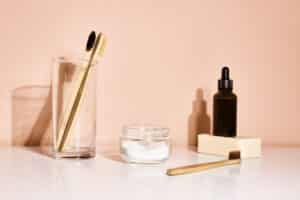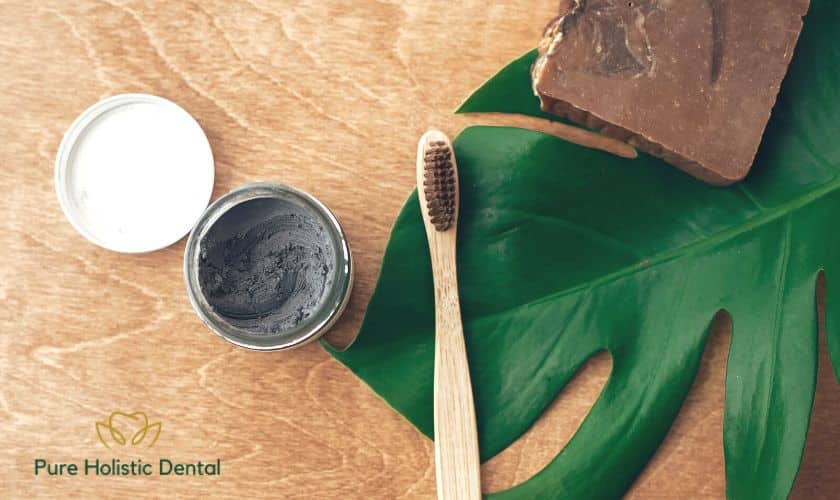When it comes to your oral health, you might think that all toothpaste is created equal. Unfortunately, this is not the case – many store-bought brands contain cheap ingredients that can actually be damaging to your teeth and gums over time. In this blog post, we’ll cover which ingredients should be avoided when selecting toothpaste for yourself or a family member. With a little bit of knowledge about which additives are potentially harmful and why you can make sure that you’re making an informed decision when it comes to choosing the right toothpaste!
Ingredients To Avoid In Toothpaste
If you’re concerned about the ingredients in your toothpaste, you’re not alone. Many people are looking for more natural options when it comes to their personal care products. But with so many choices on the market, it can be difficult to know which toothpaste is right for you. Here’s a guide to some of the most common ingredients found in toothpaste and why you might want to avoid them.
Triclosan
Triclosan is a chemical found in many kinds of toothpaste and other hygiene products, making it ubiquitous within our personal care routine. However, holistic dentistry recommends avoiding triclosan due to its potentially hazardous effects on human health. Studies have shown that triclosan can bioaccumulate in consecutive tissue cycles and can interfere with hormone production for both humans and animals. Therefore, holistic dentists recommend using natural products such as essential oils or activated charcoal toothpaste, which can effectively combat bad breath and remove food particles while being free of synthetic additives found in modern toothpaste. Holistic dentists are dedicated to educating patients on safe alternatives that do not come with the cost of long-term health risks associated with triclosan consumption.
Fluoride
Fluoride has been a subject of controversy in the world of holistic dentistry for years. On one hand, holistic dentists claim that the compound has the potential to damage teeth and other tissues over long-term exposure, while many general dentists disagree and believe that fluoride intake can actually be beneficial when given in moderation. While the debate continues to rage on, holistic dentists often recommend certain strategies such as opting for non-fluoridated products or emphasizing good oral hygiene practices in order to prevent cavity formation. Ultimately, fluoride should be used cautiously: anyone considering its use should talk to their holistic dentist about the risks and benefits so that they can make an informed decision about their oral health care.
Sodium Lauryl Sulfate (SLS)
Sodium Lauryl Sulfate (SLS) is a petroleum-based detergent used in many personal care products, such as toothpaste and shampoo. This industrial degreaser can be found in most mainstream dental care products. Fortunately, holistic dentistry is rising in awareness and this means that holistic dental patients now have more options available to meet their oral hygiene needs without the unpleasant and potentially harmful side effects associated with SLS. For example, holistic dentists are able to provide an all-natural response utilizing only natural ingredients grown above ground with holistic alternatives that can replace SLS in favor of natural ingredients such as coconut oil and other derivatives from safe plants. Holistic dentists often recommend these alternatives to keep your oral health free from petroleum by-products for longer-lasting cleanliness and wellness.
Parabens
Parabens are chemicals that are commonly used in personal care products and cosmetics. Despite their widespread use, holistic dentists warn of their potential health risks. This is why holistic dentistry centers around the natural protection of teeth and the oral microbiome when dealing with dental hygiene products. Research suggests that parabens can increase susceptibility to certain illnesses, including cancer, endocrine disruption, and reproductive toxicity. As such, holistic dentists recommend avoiding products containing parabens whenever possible to protect your teeth and overall health in a holistic way.
Diethanolamine (DEA)
Diethanolamine (DEA) is found in toothpaste to create a foaming effect. It is a hormone disruptor and reacts with other chemicals to create a carcinogenic compound called N-nitroso DEA. It gets easily absorbed by the skin and has been linked with cancer in the esophagus, stomach, liver, and bladder. A study was conducted in 1998 where the application of DEA has been linked to cancer in animals. The same study found that DEA could induce hepatic choline deficiency (deficiency of the liver). The EWG ranks it at 10, which means worst on its scale. It adjusts the pH levels of products but causes more harm than good. DEA is one of those products that must not be found in consumer products, much less toothpaste.
Artificial Sweeteners
Artificial sweeteners have been under much debate in recent years. While some believe these sugar alternatives are healthier, holistic dentists disagree. Holistic dentistry focuses on improving dental health through natural means. In holistic dentistry, artificial sweeteners such as saccharin, sucralose, and aspartame may cause more harm than good. Health benefits from holistic dental care are achieved by avoiding all artificial additives, including sweeteners. Therefore, when striving for better dental health holistically, it’s best to enjoy all treats in moderation and avoid using artificial sweeteners entirely.
Propylene Glycol
Propylene Glycol is an ingredient used in different products such as pharmaceuticals and toothpaste. While it’s been widely studied, holistic dentists advise against using it because of its health risks. Holistic dentists believe that Propylene Glycol offers no health benefit and can even trigger allergies in some cases. Instead, holistic dentistry recommends utilizing alternative ingredients for oral care that function similarly to Propylene Glycol but spare patients from potential side effects. Regarding your dental health, holistic dentists prioritize safety and well-being.
Microbeads
These products are used as mild abrasive agents that help in removing food and debris from between teeth and gums. They also help in whitening your teeth. Microbeads are made of insoluble plastic that cannot be ingested and end up in local waterways. They dissipate toxic chemicals and harm marine wildlife.
Gluten
Many people suffer from gluten intolerance. If gluten is an issue for you, checking for this ingredient when you buy toothpaste is better. However, not all brands make this clear. Patients might suffer from allergic reactions if they use these products. It is best to consult your dentist and buy from a company that is open about their ingredient list.

Ingredients To Look For In Your Toothpaste
While the above ingredients are more common, there are some you should look for:
Green Tea Extract
Although it is popular amongst tea aficionados, green tea has anti-inflammatory properties that benefit oral health. Green tea is rich in bioactive compounds, notably polyphenols, which are essential for disease prevention and treatment. Green tea catechins may prevent bacteria from growing. This can reduce the chance of infections, improve dental health, reduce the chance of caries, and lessen bad breath (halitosis). It also stops chronic halitosis, also referred to as bad breath.
Antioxidant Vitamins
Vitamins like Vitamin A (as Retinyl Palmitate), Vitamin C (as Sodium Ascorbyl Phosphate), and Vitamin E (as Tocopherol) are some commonly used vitamins in toothpaste. They can be taken in combination to fight free radicals, strengthen your gums, encourage the production of collagen, and maintain healthy levels of good bacteria for a healthier mouth. These antioxidants are best for your oral health.
Extracts Of Plants
Natural extracts such as Aloe Vera, Lavender, Wintergreen, and Peppermint are always appreciated in toothpaste. Healing botanical blends like these can hydrate your gums, reduce pain, soothe inflammation, and naturally freshen your breath.
Glycolipids & Xanthan Gum
These ingredients keep the toothpaste mixture together. Glycolipids are extracted from corn and create foam when used. Xanthan gum is derived from various natural grains and acts as a binding agent in toothpaste. Both these ingredients help protect the tooth against dental caries and prevent demineralization of the enamel.
The Bottom Line
All harmful chemicals are endocrine disruptors, which means they can throw your whole system out of balance. Hormones regulate everything from metabolism and weight to mood and reproduction, so it’s no wonder that messing with them can result in some pretty serious health issues. If you want to avoid these harmful chemicals, the best thing you can do is visit a holistic dentist who will only use materials that are safe for your body. Make an appointment today and take the first step toward protecting your health!
FAQs
Q: What are the best ingredients to look for in toothpaste if I am interested in holistic dentistry?
A: Holistic dentists recommend utilizing natural alternatives to SLS, parabens, artificial sweeteners, and Propylene Glycol that are derived from plants such as coconut oil.
Q: What are some potential health risks associated with chemicals found in toothpaste?
A: Research suggests that SLS, parabens, artificial sweeteners, and Propylene Glycol can increase susceptibility to certain illnesses such as cancer, endocrine disruption, and reproductive toxicity.
Q: How can I ensure that I am avoiding these chemicals in my toothpaste?
A: The best way is to do your research and own your own health by reading the ingredients and making a conscious decision to purchase better products. You can also ensure that you are only using safe ingredients by visiting a holistic dentist who will only use materials that are safe for your body. Make an appointment today and take the first step toward protecting your health!



